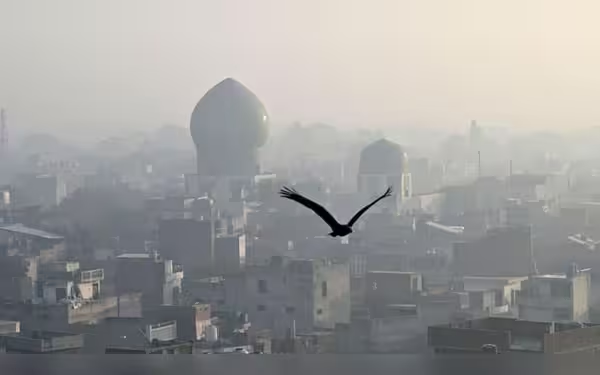Sunday, December 22, 2024 02:47 PM
Lahore Declared Most Polluted City in the World
- Lahore's air quality index reaches hazardous levels.
- Government implements strict measures to combat pollution.
- Residents face serious health risks from poor air quality.
 Image Credits: thenews.com.pk
Image Credits: thenews.com.pkLahore faces hazardous air quality, declared most polluted city globally, prompting urgent government measures and health concerns.
Lahore, the vibrant capital of Punjab, has once again found itself in the unfortunate spotlight as it has been declared the "most polluted city in the world." On Thursday, the air quality index (AQI) soared to "hazardous" levels, indicating a serious decline in air quality. This alarming situation comes just days after a brief period of improvement, which was largely attributed to the provincial government's efforts to combat air pollution.
The air quality in Lahore has been a growing concern for residents and environmentalists alike. Factors contributing to this dire situation include vehicular emissions, industrial discharges, and the burning of crop residue in surrounding areas. These elements combine to create a thick blanket of smog that envelops the city, particularly during the winter months when weather conditions trap pollutants close to the ground.
In recent days, the provincial government implemented strict measures aimed at curbing pollution levels. These included restrictions on construction activities, a crackdown on vehicles that do not meet emission standards, and public awareness campaigns about the importance of clean air. While these initiatives showed promise, the rapid return to hazardous levels of pollution highlights the ongoing challenges faced by the city.
Residents of Lahore are understandably concerned about the health implications of such poor air quality. Exposure to hazardous air can lead to serious health issues, including respiratory problems, heart disease, and other chronic conditions. Children, the elderly, and those with pre-existing health issues are particularly vulnerable. It is crucial for the government and citizens to work together to find sustainable solutions to this pressing problem.
As Lahore grapples with this environmental crisis, it serves as a reminder of the urgent need for effective policies and community engagement in tackling air pollution. The situation calls for a collective effort to not only address the immediate concerns but also to foster long-term changes that will ensure cleaner air for future generations. It is essential for everyone, from policymakers to everyday citizens, to take responsibility and contribute to a healthier environment.













